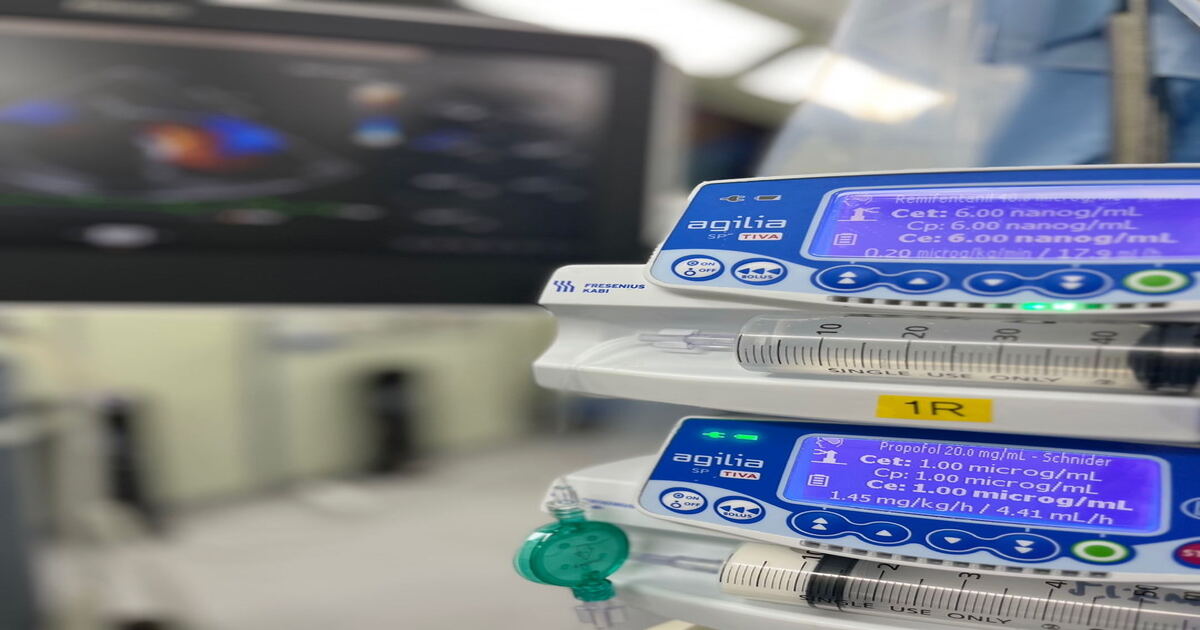New Insights into Personalized Medicine for Anesthesia and Pain
A special issue of Journal of Personalized Medicine (ISSN 2075-4426). This special issue belongs to the section "Personalized Critical Care".
Deadline for manuscript submissions: 25 January 2025 | Viewed by 1313

Special Issue Editors
Interests: general anesthesia; cardiac surgery; echocardiography; postoperative pain; biostatistics; epidemiology; systematic review and meta-analysis; lipid; atherosclerosis
Special Issues, Collections and Topics in MDPI journals
Special Issue Information
Dear Colleagues,
Modern medicine is undergoing a profound transformation, with personalized medicine emerging as a key beneficiary of these advancements, representing an approach that tailors medical treatment to the unique genetic, environmental, and lifestyle characteristics of each patient. Our Special Issue, "New Insights into Personalized Medicine for Anesthesia and Pain", explores the latest research and developments that are redefining anesthesia and pain management paradigms.
Personalized medicine marks a shift from the traditional "one-size-fits-all" model to a more nuanced strategy. In anesthesia, this tailored approach promises to optimize drug efficacy, minimize adverse effects, and enhance patient safety and surgical outcomes. In pain management, personalized strategies are essential for addressing the complexities of chronic pain, often requiring multifaceted and individualized treatment plans.
Our Special Issue aims to illuminate the path forward for personalized medicine in anesthesia and pain management. By fostering a deeper understanding of individual patient variability and its implications for clinical practice, we hope to inspire ongoing innovation and collaboration in this dynamic field. Ultimately, our goal is to enhance patient outcomes and quality of life through more targeted and personalized therapeutic strategies.
Prof. Dr. Hyun Kang
Dr. Guen Joo Choi
Guest Editors
Manuscript Submission Information
Manuscripts should be submitted online at www.mdpi.com by registering and logging in to this website. Once you are registered, click here to go to the submission form. Manuscripts can be submitted until the deadline. All submissions that pass pre-check are peer-reviewed. Accepted papers will be published continuously in the journal (as soon as accepted) and will be listed together on the special issue website. Research articles, review articles as well as short communications are invited. For planned papers, a title and short abstract (about 100 words) can be sent to the Editorial Office for announcement on this website.
Submitted manuscripts should not have been published previously, nor be under consideration for publication elsewhere (except conference proceedings papers). All manuscripts are thoroughly refereed through a single-blind peer-review process. A guide for authors and other relevant information for submission of manuscripts is available on the Instructions for Authors page. Journal of Personalized Medicine is an international peer-reviewed open access monthly journal published by MDPI.
Please visit the Instructions for Authors page before submitting a manuscript. The Article Processing Charge (APC) for publication in this open access journal is 2600 CHF (Swiss Francs). Submitted papers should be well formatted and use good English. Authors may use MDPI's English editing service prior to publication or during author revisions.
Keywords
- new insights
- personalized medicine
- anesthesia
- pain management
- perioperative analgesia
- airway management
- perioperative nausea
- interventional pain care
- critical care
- minimally invasive surgery/robotic surgery
- mechanical ventilation
- chronic pain
- acute pain
- lumbar/cervical/thoracic/spinal pain
- musculoskeletal pain
Benefits of Publishing in a Special Issue
- Ease of navigation: Grouping papers by topic helps scholars navigate broad scope journals more efficiently.
- Greater discoverability: Special Issues support the reach and impact of scientific research. Articles in Special Issues are more discoverable and cited more frequently.
- Expansion of research network: Special Issues facilitate connections among authors, fostering scientific collaborations.
- External promotion: Articles in Special Issues are often promoted through the journal's social media, increasing their visibility.
- e-Book format: Special Issues with more than 10 articles can be published as dedicated e-books, ensuring wide and rapid dissemination.
Further information on MDPI's Special Issue polices can be found here.







